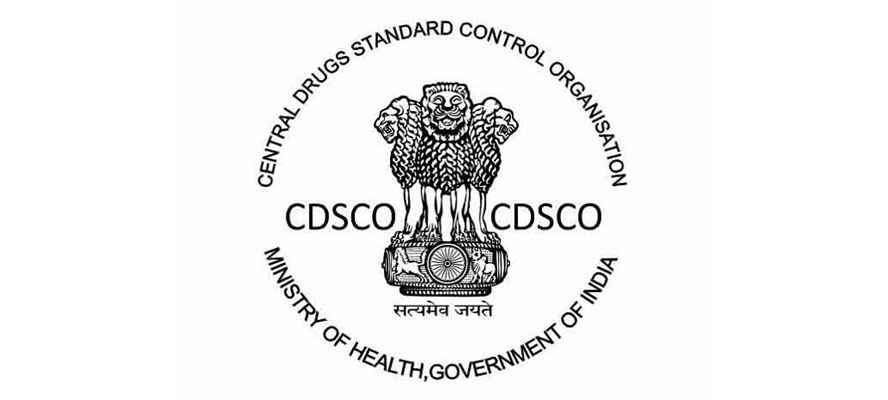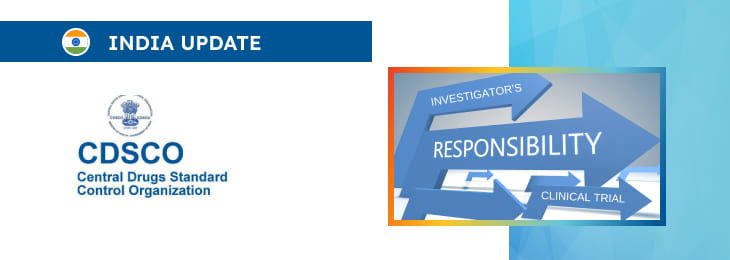The new article outlines the key responsibilities of an investigator in the context of a clinical trial.

Table of content
The Central Drugs Standard Control Organization (CDSCO), an Indian regulating authority in the sphere of healthcare products, has published a guidance document dedicated to Good Clinical Practices. The document provides an overview of the best principles and approaches, as well as additional clarifications and recommendations to be considered by the parties responsible for clinical trials involving healthcare products in order to ensure compliance with the applicable legal framework.
Investigator Overview
The role of the investigator in a clinical study is critical to ensuring that the study is conducted in compliance with the protocol, Good Clinical Practices (GCP), and applicable regulatory guidelines. The investigator is responsible for ensuring the integrity of the study, the safety of participants, and the reliability of data.
The relevant section outlines the qualifications, resources, and responsibilities required of the investigator, along with key aspects such as medical care of participants, communication with ethics committees, and compliance with investigational product management protocols.

Investigator Qualifications, Resources, and Responsibilities
First of all, the investigator must be qualified by education, training, and experience to manage the study’s conduct properly. In India, these qualifications are regulated by the National Medical Commission (NMC) or the Dental Council of India, in the case of dentists.
The investigator must provide relevant documents, including their curriculum vitae, to the sponsor, ethics committee, or regulatory authorities as required. Additionally, the investigator should be familiar with the safety, efficacy, and proper use of the investigational product as outlined in the protocol, the investigator’s brochure, and other information provided by the sponsor.
Compliance with the protocol, GCPs, and other regulatory requirements is essential. The investigator must demonstrate the ability to recruit the required number of eligible participants within the study’s recruitment period.
Moreover, the investigator should have adequate time, staffing, and facilities to ensure that the study can be conducted safely and efficiently over its duration. While the investigator may delegate certain study-specific activities to other qualified individuals, they retain ultimate responsibility for overseeing the study and ensuring participant safety and data reliability.
The investigator is expected to provide proper supervision of all delegated activities and ensure that all parties are adequately trained and informed about the protocol, investigational product, and their assigned roles. If the investigator engages service providers to support study activities, these arrangements should be documented.
The investigator must ensure that all delegated persons or parties are qualified and supervised, including those provided by third parties such as home nurses arranged by the sponsor.
Medical Care of Study Participants
A qualified medical practitioner or dentist should oversee all study-related medical decisions. The investigator must ensure that adequate medical care is provided to participants for any adverse events, including those identified through laboratory abnormalities related to the study.
Participants should be informed if medical care is needed for other health conditions, and the investigator should notify the participant’s attending physician about their involvement in the study, provided the participant agrees. After the study is completed or the participant withdraws, the investigator should maintain relevant medical care and follow-up as needed.
Adverse events should be reported to the sponsor according to the study protocol’s requirements and within specified timeframes. Additionally, while participants are not required to provide reasons for withdrawing from the study, the investigator should make reasonable efforts to understand the reasons for withdrawal while respecting the participant’s rights.
Monitoring and Auditing of Records
The investigator and institution must allow monitoring and auditing of study records, procedures, and facilities by the sponsor, ethics committee, Contract Research Organization (CRO), or authorized regulatory authorities. The investigator is responsible for maintaining a list of qualified individuals to whom study-related duties have been delegated.
All individuals involved in the study must be informed about the protocol, SOPs, investigational product(s), and their respective study-related duties. This ensures that everyone is aligned with the requirements and responsibilities of the study.
Communication with the Ethics Committee
Before starting a study, the investigator or institution must ensure that the relevant ethics committee has reviewed and approved the protocol, informed consent form, and participant recruitment procedures. This approval must be in writing.
The investigator is also responsible for providing the ethics committee with the latest version of the Investigator’s Brochure and any updates that occur during the study. During the study, the investigator must promptly report any protocol deviations, serious adverse events, or new safety information to the ethics committee, monitor, and sponsor.
In the case of participant deaths, the investigator must provide additional information, such as autopsy or terminal medical reports.
Compliance with the Protocol
The investigator must agree in writing with the sponsor to comply with the study protocol, GCP guidelines, and relevant SOPs. No deviations or changes to the protocol are permitted without the sponsor’s agreement and prior ethics committee approval, except in emergencies where deviations are necessary to eliminate immediate hazards to participants.
The investigator should document and explain any protocol deviations and ensure that they are submitted to the sponsor and ethics committee for review.
Investigational Product(s) Management
The investigator is primarily responsible for investigational product(s) accountability at the study site(s). This includes maintaining records of product delivery, inventory, use by participants, and return or disposal of unused products.
These records should include batch numbers, expiration dates, and other pertinent details. Investigators must ensure that products are stored under proper conditions and used according to the protocol.
The investigator may delegate product management duties to qualified personnel but must supervise their work to ensure compliance. The investigator should also provide participants with clear instructions on how to use the investigational product(s) and conduct regular checks to confirm proper usage.
Selection and Recruitment of Study Participants
The investigator is responsible for recruiting participants according to the study protocol. To ensure unbiased selection, the investigator may need to collaborate with other physicians.
It is important to prospectively or retrospectively evaluate the availability of participants to meet recruitment targets. A confidential list of participants must be maintained to facilitate identity verification if needed.
The investigator should also maintain logs of participant screening, enrollment, and withdrawals. Informed consent is a critical responsibility of the investigator.
The investigator must ensure that participants are fully informed about the study and its risks without any coercion or undue influence. In cases where significant new information arises or study procedures change, the informed consent process must be renewed.
Randomization and Unblinding Procedures
For studies involving randomization, the investigator must follow the protocol’s procedures. If the study is blinded, the investigator should ensure that the blinding is maintained.
In emergencies, the investigator should be prepared to unblind the study if necessary for participant safety, documenting the reasons for any premature unblinding.
Recordkeeping and Reporting
The investigator must ensure the accuracy, completeness, and timeliness of data reported to the sponsor through Case Report Forms (CRFs). Data should be consistent with source documents, and any discrepancies must be explained.
Changes to source data must be traceable and transparent, with no obscured entries. Investigators must retain all relevant study documentation, including source data, progress reports, and final reports.
If the study is prematurely terminated, the investigator must inform the participants, ethics committee, and regulatory authorities, ensuring appropriate follow-up care. At the conclusion of the study, the investigator must submit a final report verifying the validity of the study data.
For multi-center studies, the coordinating investigator’s signature may suffice if agreed upon in the protocol.
Conclusion
In summary, the document describes in detail the key requirements investigators should meet, as well as outlines their responsibilities, emphasizing the most important aspects to be taken into consideration.
How Can RegDesk Help?
RegDesk is an AI-powered Regulatory Information Management System that provides medical device companies with regulatory intelligence for over 120 markets worldwide. It can help you prepare and publish global applications, manage standards, run change assessments, and obtain real-time alerts on regulatory changes through a centralized platform. Global expansion has never been this simple.

